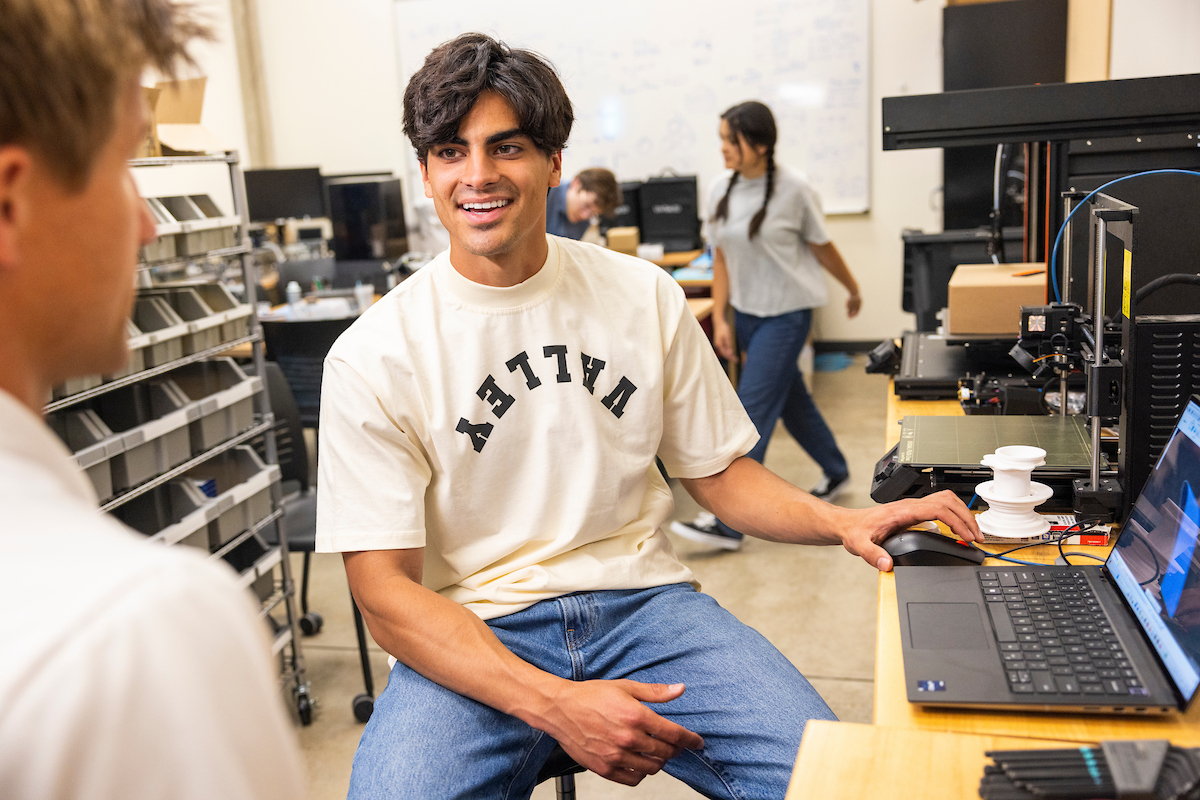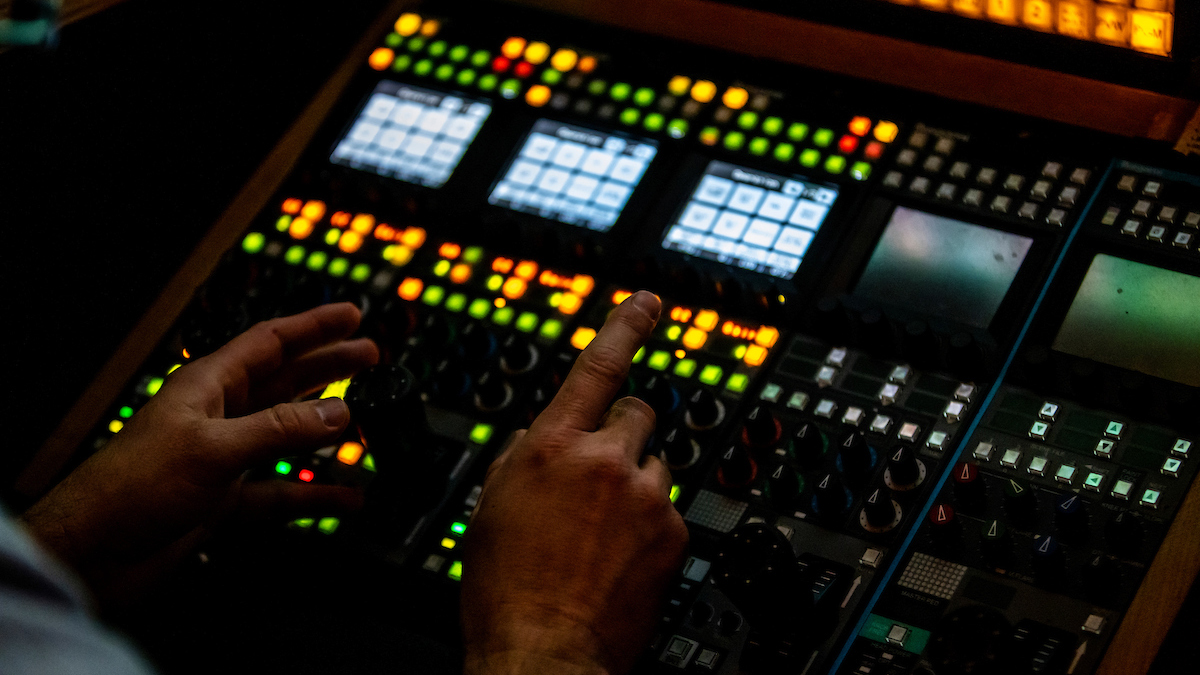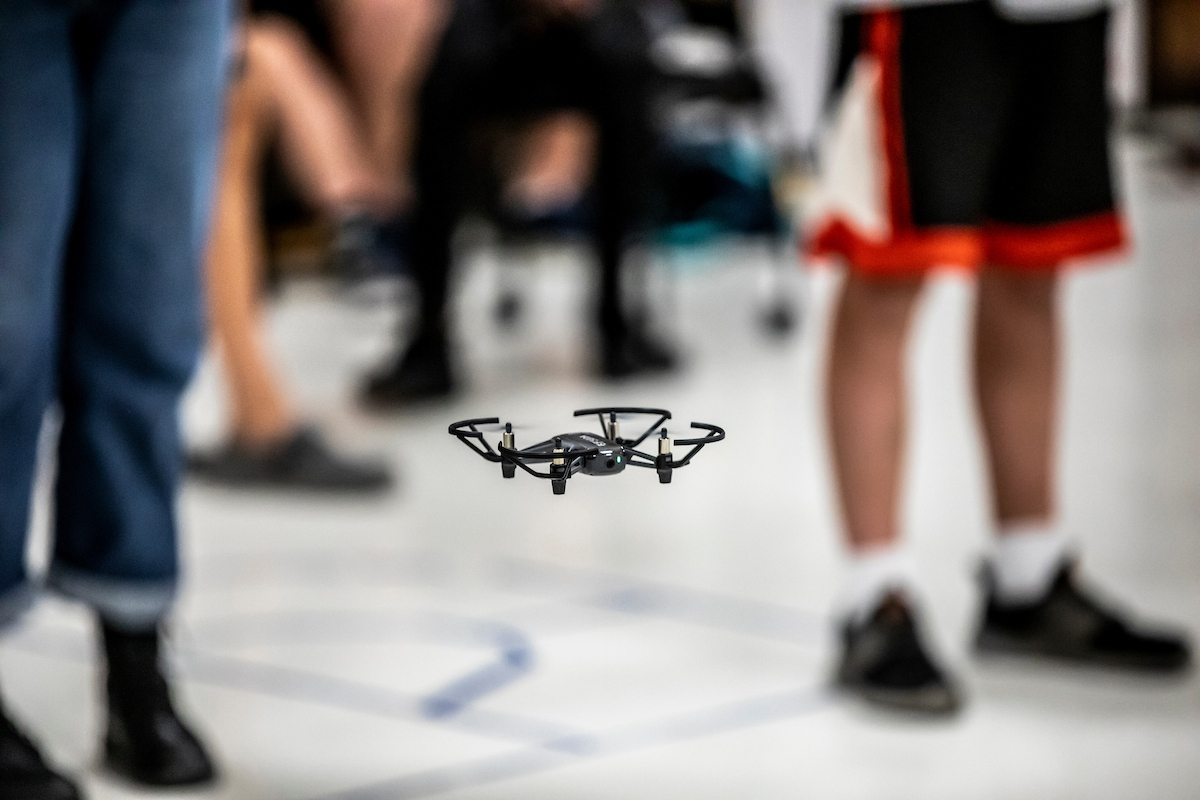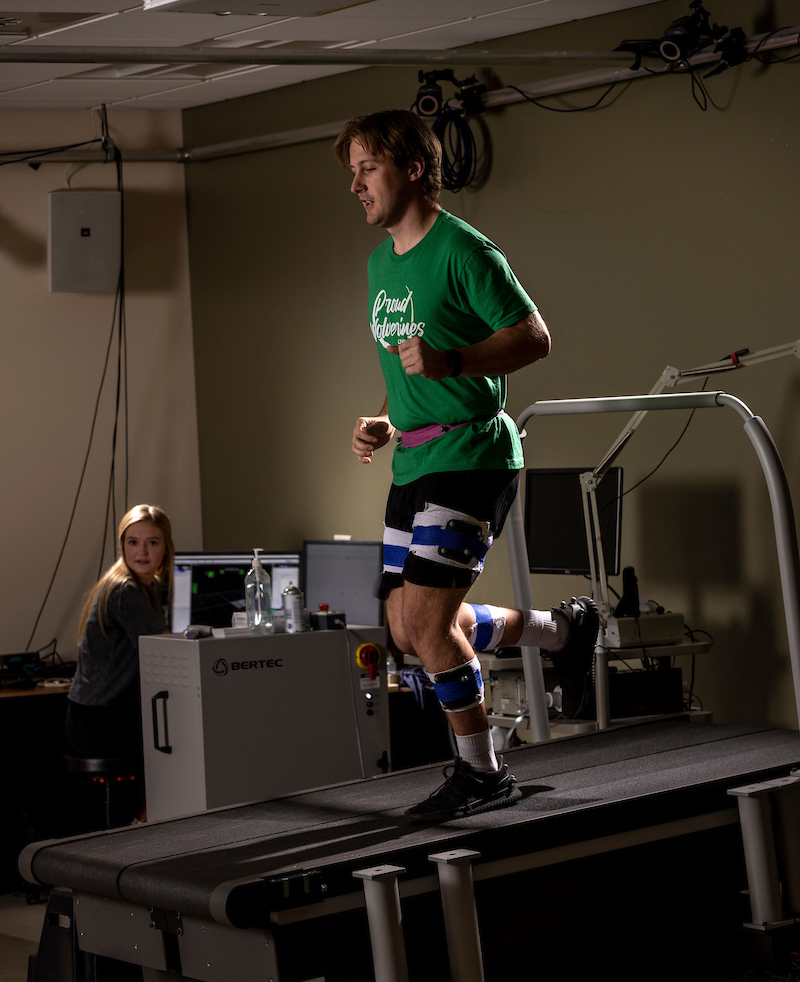Artificial intelligence (AI) is transforming industries and redefining careers. See how UVU is preparing students to solve real-world problems and shape our future.

Artificial intelligence (AI) is rapidly transforming industries and redefining how we work, live, and connect with the world. At the forefront of this revolution is applied AI — the practical implementation of AI systems to solve real-world problems. From enhancing healthcare diagnostics and automating business processes to improving transportation and developing smarter technologies, applied AI solutions are everywhere, and AI’s impact grows with each passing year.
For college students and professionals alike, applied AI represents not just a technical field but a bridge between innovation and impact.
In this article, we’ll explore what applied AI is and the career paths emerging in the applied AI field, including roles like applied AI engineers, data scientists, and AI product managers. You’ll get an inside look at what it’s like to work in applied AI, the skills needed to thrive in this cutting-edge industry, and where the field is headed as demand for AI expertise rises.
Finally, we’ll discuss how college students can prepare for careers in applied AI through programs like Utah Valley University’s (UVU) applied AI master’s degree, which equips students with the tools to succeed in this dynamic industry. Whether you’re a tech enthusiast or someone looking for a future-proof career, applied AI offers exciting possibilities.
Applied AI refers to the practice of using artificial intelligence technologies to solve specific, real-world problems across various industries. While theoretical AI is focused on research and creating algorithms, applied AI implements those concepts in practical settings, turning ideas into tangible tools, products, and solutions. Applied AI can be used for a myriad of things — like powering self-driving cars, creating original artwork, and analyzing medical images to identify diseases.
This industry can be interesting for students who value creativity and critical thinking, as well as those who have a knack for tech fields. While studying applied AI, students won’t just be writing code — they’ll also work to understand how AI can be used to solve problems, collaborate with members of different teams, and build applied AI systems that create real impact in people’s lives. Careers in applied AI often involve working with data, training machine learning models, and optimizing systems to perform tasks efficiently.
What makes applied AI particularly exciting for students is its versatility and relevance. Applied AI can be used for so many things in many industries, including the following:
Whether you’re interested in healthcare, finance, retail, manufacturing, entertainment, or other industries, applied AI drives innovation across all these sectors. By studying applied AI, students can gain the tools to innovate, solve complex problems, and contribute to the developments that shape our world.
As industries rapidly adopt AI, institutions like UVU are stepping up to prepare students for these challenges and ensure they graduate with the skills they need to successfully enter the workforce.

Applied AI offers a variety of rewarding career paths. From building systems and analyzing data to managing AI-driven products, there’s a role that fits your skills and interests. Here are some of the most common career paths in applied AI:
While applied AI is widely known for its role in tech, healthcare, and finance, its influence is quietly expanding into lesser-known areas — especially in the humanities and liberal arts. Fields like education, philosophy, and the arts are finding new ways to leverage AI, including the following examples:
These emerging applications show that AI is not just for coders or data scientists — it’s a tool that can enhance critical thinking, creativity, and problem-solving across industries. The next generation of AI pioneers will come from diverse professional backgrounds, bringing fresh perspectives to how AI is used and developed.
Want to learn more about how applied AI is used in fields like these? In this video, UVU Philosophy Professor Shannon Mussett discusses using AI in higher education and its broad potential: https://youtu.be/3gcUwenv0JY?si=lLrFpRADDfDj2HHs.
Think code and numbers aren't for you? Turns out you don't need a data background to offer important insights into the world of applied AI. Watch Barton Poulson teach about why we need liberal arts education for successful data analysis: https://youtu.be/vRnlcMCBQtA?si=vRFiv1oLgzHbgITQ.
Being an applied AI engineer is both challenging and rewarding. Engineers in this role work on solving real-world problems using the most advanced AI technologies. A typical day might involve collaborating with cross-functional teams, training machine learning models, and optimizing AI systems for performance and efficiency.
Applied AI engineers must learn and adapt in this ever-evolving field, making it an ideal career for those who thrive in dynamic environments and value innovation. The work can be impactful, often resulting in systems that improve lives, streamline operations, or drive innovation in industries ranging from healthcare to entertainment.

The future of the applied AI industry is brimming with potential and growth. As technology advances, AI becomes more accessible, adaptable, and integrated into everyday life. Industries like the ones mentioned in this article will likely benefit from groundbreaking AI applications, from personalized medicine to smarter energy grids.
The demand for skilled professionals in applied AI is always rising, with companies in many different sectors investing in AI-driven solutions. The global AI market is expected to grow exponentially, creating abundant job opportunities for those with expertise in applied AI. The United States Bureau of Labor Statistics estimates that employment in computer and information technology roles will grow much faster than average from 2023 to 2033. The bureau projects approximately 356,700 job openings each year.
Emerging trends, such as generative AI, ethical AI development, and AI-powered automation, will shape the future landscape of the industry. Professionals must stay adaptable and build their skills to keep pace with these changes. Most computer and information technology professions require a bachelor’s degree or higher.
For students, this is an exciting time to enter the field. Programs like UVU’s applied AI master’s degree provide the foundation and practical experience needed to navigate this fast-paced and ever-evolving industry. By gaining the right expertise, students can play a role in creating transformative technologies that improve the way we live and work.

Utah Valley University offers flexible and robust pathways for students to study applied AI and prepare for careers in this exciting field. Whether you’re looking to deepen your expertise or gain practical skills, UVU has options to fit your goals, from applied AI courses to an applied AI master’s degree program:
UVU is making significant strides in AI, both in the classroom and beyond. In November 2024, UVU launched the Applied Artificial Intelligence Institute, led by Executive Director Rachael Hutchings and Chief AI Innovation Officer Barclay Burns. The institute explores how AI can make an impact — not just in tech but also across campus and the wider community. With a focus on innovation and real-world applications, UVU is setting the stage as a leader in using AI to enhance education and solve real challenges.
A recent student-led research project looked into how AI is used in creating deepfakes and spreading election disinformation. Their findings, shared at the Election Integrity Deepfakes Forum, revealed key insights about the public’s ability to spot fake content and how AI shapes political messaging.
Ready to take the next step? UVU helps students gain the skills and experience to thrive in this dynamic and growing industry. Apply now or contact us to learn more about UVU’s applied AI programs and start shaping your future in AI today.